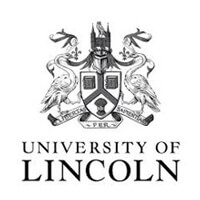fees waived
International Relations, BA (Hons), with industry placement
University of Lincoln, United Kingdom
Subject ranking
UK / Times 76th
UK / Times 76th
UK / Guardian 77th
Costs
food & rentS$16.8K / year
Entry requirements
Scholarships
Unlimited quantity
Unlimited quantity
Unlimited quantity
Unlimited quantity
Limited quantity
Limited quantity
Information
Code
Code
Intakes
Website (External)
Programmes
Information
Duration
2028
Course summary
Our BA (Hons) International Relations degree is an interdisciplinary programme which draws upon politics, economics, history, sociology, international law, geography and cultural studies to explore global issues such as conflict, global inequalities, sovereignty and human rights. International Relations is the study of how political, economic and cultural forces interact to mould relationships between nations. The balance of these dynamics enables peace and trade to be maintained in a complex, globalised world, where pockets of tension can rapidly escalate beyond borders. International Relations at Lincoln aims to provide a structured way of understanding and influencing the cross-border factors shaping our societies: security, conflict, inequality, development, intercultural understanding and human rights. Students are taught by academics who are currently engaged in research across a range of specialisms including terrorism, gender and sexuality, international political economy, war crimes and genocide, the politics of global health and the European Union. Teaching is driven by the latest developments in the discipline. The first year of the course introduces central issues and concepts in international relations, global and UK politics and the broader social sciences. Students are supported to develop research and IT skills. In years two and three, the course explores the theoretical foundations of the subject, and students have the opportunity to learn about the operation of international diplomacy by participating in a Model United Nations simulation. Optional modules are offered in specialist areas spanning global, national and local levels of analysis. In the third year, students are required to produce an independent study in a research area of their choice. For the most up to date module information, please visit the course page for this programme on our website. Some programmes provide you with the opportunity to focus your study in a particular area through optional modules. Timetabling arrangements may limit the availability of some optional modules to some students. As the options often reflect staff research interests, they may alter over time due to staff availability. The way students will be assessed on this course will vary for each module. It could include coursework, such as a dissertation or essay, written and practical exams, portfolio development, group work or presentations to name some examples. Throughout this degree, students may receive tuition from professors, senior lecturers, lecturers, researchers, practitioners, visiting experts or technicians, and they may be supported in their learning by other students.Modules
Assessment method
The first year of the course introduces central issues and concepts in international relations, global and UK politics and the broader social sciences. Students are supported to develop research and IT skills. In years two and three, the course explores the theoretical foundations of the subject, and students have the opportunity to learn about the operation of international diplomacy by participating in a Model United Nations simulation. Optional modules are offered in specialist areas spanning global, national and local levels of analysis. In the third year, students are required to produce an independent study in a research area of their choice. For the most up to date module information, please visit the course page for this programme on our website. Some programmes provide you with the opportunity to focus your study in a particular area through optional modules. Timetabling arrangements may limit the availability of some optional modules to some students. As the options often reflect staff research interests, they may alter over time due to staff availability.
A local representative of University of Lincoln in Singapore is available online to assist you with enquiries about this course.

